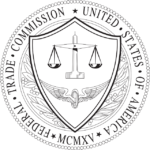“Please Explain A Reverse Mortgage”
Someone asked me recently to please explain a reverse mortgage. BE AWARE of this potential trap.
Remember when you bought your home? You got a mortgage, a huge loan, and you put a down payment into the purchase, real money you have worked for and saved, and that’s how you came up with the purchase price.
If you got a 30 year fixed rate, at the end of the thirty years you may pay double or triple the price of the home.
You can usually pay it off faster if the loan contract allows you to, saving a lot of money in interest charges.
So many years later, you’re a senior retiree, or within years of retirement (you have to be at least 62 years old to apply for a reverse mortgage), and let’s say you have paid off the home, or paid it off at about 80%.
You’d like to retire but you don’t have much in the way of savings.
Your social security income, combined with that of a spouse if you have one, is not enough to live on, and continue paying the property taxes and home maintenance.
Then you hear a radio ad, or see a television ad, performed by a celebrity you know and like.
They tell you that you can sell your house back to some kind of financial institution, which will pay you a favorable monthly amount for your home.

This business will buy your home, slowly, over time.
How much time?
This depends on the loan contract.
During the effective duration of the contract, you can live in the home. Your spouse can as well, even if you die, as long as the spouse is on the loan.
Your spouse MUST be on the loan.
“What Are The Reverse Mortgage Risks?”
Reverse mortgage risks is a high profile topic on consumer and government sites.
Both the FTC and the FBI issue warnings.
If you outlive the reverse mortgage loan it’s payable in full right then according to Forbes.
If you are given a few months grace, the loan amount continues to increase.
And that could wipe out your savings if the house sale can’t pay it.
If it is a bad time for you to sell, the lender can foreclose on the home.
Now you have no house and any savings will be dissipated by moving and the cost of renting.
Worse yet, now you’re so many years older.
The Pros And Cons Of A Reverse Mortgage
- Mortgage companies usually charge fees to initiate a loan and it will also have closing costs just like any other mortgage.
- These loans are considered expensive and complicated.
- Intermittent costs may occur for the ongoing administration of the mortgage.
- The balance you owe on the loan increases every month and interest may be high.
- The monthly payout reverse mortgages (most typical) are subject to varying rates and may increase your balanced owed.
- This loan can eat up all the equity in your home, leaving a diminished or no legacy for your heirs.
- You, the home owner, are responsible for all expenses and maintenance. In fact, some loan companies withhold payouts to save for upkeep. After all, it is likely that it will end up being their home to sell.
- If you neglect the upkeep or property taxes, some companies will then demand full payout.
- Interest on these mortgages may not be deductible from your taxable income until the loan is paid back in part or whole.
In the US the government attempts to protect consumers, especially seniors, from reverse mortgage cons by providing counseling for home owners who are seeking financial relief.
These advisors have no financial interest in the outcome of an application for funds.
After such a counseling session, a certificate is issued to the person or couple and that certificate is required for a loan application.
Retirees are “marks” for the shark infested markets of these risky loans.
Advertising, church groups, and the seminar circuits are busy roping in attendees.
Desperate and vulnerable seniors may have their critical thinking faculties submerged by their financial stress.I personally knew someone who was approached by a lender, to apply for a reverse mortgage.
When the terms were outlined, the lender came up with a $25,000.00 closing cost.
Where’s the outrage?
The FBI recommends…
…That you never respond to an unsolicited ad. If you listen to talk radio you’ll hear them every day! You will get the best information from a HUD counselor.

The Federal Trade Commission advises…
…That if during a reverse mortgage application process there is any pressure to proceed, or any feeling of being rushed, to “just walk away“.

Review all the pros and cons of a reverse mortgage.
Like with any loan, shop around and compare fees, interests and other options.
It is crucial to understand how the loan amount increases, and that there are conditions under which the loan may become payable.

You may have to pay for a home appraisal and inspection upfront.
Forbes advises that you have an attorney review the loan contract, and that is an extra cost for you too.
It is worthy of note that the bigger banks like Bank of America and Wells Fargo no longer issue these loans.
Your regional Area Agency On Aging can give information on alternate types of loans for home repairs.
Don’t get “sold” on a private lender loan if you have better options.
On the hud.gov web site it states:
“Reverse mortgages are increasing in popularity with seniors who have equity in their homes and want to supplement their income. The only reverse mortgage insured by the U.S. Federal Government is called a Home Equity Conversion Mortgage or HECM, and is only available through an FHA approved lender. “
Two Important Points
Get a HUD counseling session with a qualified person who has no stake in you getting a loan.
Get a US government insured loan, an HECM.
(The two and a half point – have an attorney review the loan contract.)
Update: I wrote this two years ago.
I just came across a Washington Post article by Jonnelle Marte. which discusses the common financial struggles of people over 60.
The comment section follows mostly the issue of reverse mortgages and it is interesting! Her main points in the article are:
- Struggles with debt
- Suffering the complications of reverse mortgages
- A difficulty with recovering from scams or identity theft
- Non-comprehension of banking products and fees
- Managing finances after a spouse’s death
One comment is:
“Not mentioned is the widow’s tax penalty. The year after the death of a spouse, the survivor files singly and is bumped to a higher tax bracket, even if his/her income is likely to be lower.“
That is something that I think should be changed!
There are more scams and frauds every year involving seniors. Some real shockers, to me anyway.
Here is a real story in this post I wrote about elder fraud, “Recent Fraud Stories – Senior Targeted”.

I hope I’ve given some insight here for my friend who asked me to please explain a reverse mortgage.
Would you like to learn to write a blog like this?
You can get free training to experience first hand how this works. You will make a real blog! Click below to start a free account.
Drop me a comment below if you have any thoughts or questions about reverse mortgages, or other financial concerns that seniors face.


I think this is an amazingly informative article. I applaud you for taking the time to give the pros and cons of a reverse mortgage. As a former executive for one of the largest banks in the world, I can tell you that I have seen nothing good come from a reverse mortgage. There are situations that it seemed to make the most sense but in most cases homeowners do not understand the agreement and what will happen when the equity runs out (and it does in most cases). Great article!
Hi Heather Grace. Thank you for your feedback. I only heard about these when a friend mentioned he’d been approached to get one and the closing costs were over $25,000.00! He lives on Social Security benefits and can’t even save. He ended up renting a room in the home for financial relief.
Never heard of a reverse mortgage but once I’ve seen that the FBI can get involved I know that this is something to be taken seriously. I feel that everyone who takes on home ownership should be prepared for all the things that come with it. Including your regular monthly payments and all of the extra fees that you may need to pay every month. So this is just another example of things to be aware of.
Hi Chris and thanks for your comment here. It is indeed good for senior home owners to understand all their ongoing responsibilities and options for financial help before they get preyed upon by these nefarious lenders.
Recently I responded to a talk radio ad by Hugh Hewitt recommending a financial counselor at “Applied Financial Planning”.
The counselor I met with did suggest that I look into a reverse mortgage because, at 66 years old, I have a valuable home and not a lot of savings.
One thing that he said was that, no matter how long I live, the money never stops and I can never be forced to leave the home. Even if the approved equity is used up.
He said that if things go negative the government has to absorb the loss.
Is that true ?
Hi Denny. A crucial question! From everything I have read, that is not true. Yet to be certain I would be interested to look further. I do recall reading specifically, however, that the government does not absorb the loss. They are not government loans, they are private loan companies. The only government involvement is the initial counseling with a HUD or FHA trained individual, to qualify you for a loan application.
But you’ll hear more about this as I find the information!
Adding, there is a certain kind of loan that the gov will cover, but they’re not all like that.
Catching up with Denny – I’ve updated the article to include the data about the HECM loans, which are insured by the US government. I couldn’t find out, however, what happens if you outlive that type of loan.
reverse mortgages seem to be getting really popular and been targeting a lot of retirees. I am a little bit skeptical because it wasn’t long ago that the housing market crashed. From what I understand, a lot of people were using the equity from appreciation of their homes like it was an ATM and acted like money was limitless. Does a reverse mortgage follow a similar path?
I am hoping you can enlighten me a little more on this subject. Am I missing something?
Jessie
Hi Jessie. A reverse mortgage means a bank buys your house, making monthly payments to you. You cannot take money out of the home’s equity in addition to that payment, because you no longer own the home unless you pay all the loan back. It’s a tricky type of loan yet for some, can be the only income they have coming in.
This a great and informative article. It is important for our seniors to understand what they are being sold and what is being given up in order to receive the perceived benefits of a reverse mortage loan. How disheartening to hear how seniors are being taken advantage of and not fully understanding. I hope your article helps some to not fall into this trap, and if they choose this step that they can better understand their decision. Thank you.
We hear about senior scams every day. This one is a biggie! A good reverse mortgage depends on the home owners having the ready cash to review it with an attorney, pay the closing costs, and do all the updates that the mortgage company – the new owner – demands. So just in that, this is not an option for the financially destitute. Thanks for your response!
Dianne, thank you for this great article. This really answers many of the questions that i had thought about when watching the commercials for this type of loan. It also makes me wonder how many people have been caught up with the program only to find that they were duped into believing this would work for them. I know they would feel differently had they had information such as this to help them decide the correct direction to take. I am about to begin training for a legal shield company that promotes security and support from a renowned organization, and hopefully this will also shed light into this field. Thanks Dianne.
You’re welcome Xavier. I hear ads all the time by reputable radio hosts. Those are exactly the kind the FBI says to avoid. Yet with the right counseling a couple or individual can get a loan where they won’t be kicked out of the house at some point. It is a complex kind of exchange with LOTS of fine print. Thanks for your feedback!
Hello Dianne,
Great article. I have often heard about ‘reverse mortgages’ but not ‘quite get it’. Thanks so much for this article. Now I get it. It is so good to be able to find information when you need it and even before you need. You have a great website and I have been stalking it for a while now- confession is good for the soul.
Keep up the great job and much success.
Michelle
Ha ha stalking Michelle. Keep it up lol ! Yes, there are horror stories about these loans that were sold to people who outlived them and didn’t have that outcome protected. Even a banker left a comment here and she advised against them.
Dianne this is a very helpful article because I have a friend who got a reverse mortgage and speaks in generalities about her regret. Every once in a while she expands on the negative impact it has had on her. Apart from the unexpected fees, she feels less secure because she worries , as Heather points out, what will happen when the equity runs out.
Your post has filled in a lot of the blanks for me and I feel a lot more confident in making the right decision when the time comes. Thanks again for a very helpful and well written post.
Hi Thabo. I do feel sorry for your friend. When I read some of the “fine print” rules that these loans bring, it may result in a drastic situation. If you don’t do upgrades or repairs immediately (your cost) they withhold the monthly payment. They own the house, and they own YOU. So sad!
Good counseling will help people avoid the pitfalls.
Great post and good info.
If I’m not wrong, thede kinds of mortgages are the reason our countries almost went bankrupt because people couldn’t pay their loans anymore.
For me this is somethingI honestly would never do it.
I save for it and then I buy or invest.
Anyway, now I’m doing affiliate marketing and without investing I get money
Simply join Wealthy Affiliate.
Anyway, thanks for sharing!
Hi Emmanuel. That bank scandal was very complicated and devastating for many. SO sad.
It’e true that affiliate marketing can be practiced with very little money compared to a brick and mortar business. To your success!
I think one would have to be in a desperate situation to resort to taking out a reverse mortgage. There are only happy endings here for the company who takes over the mortgage.
Yet so many people find themselves with hopelessly too little savings at retirement time and have few options. People should be taught from a young age to start saving every month towards their retirement. The younger you start the better and hopefully they can avoid this situation happening to them.
Retirement years are supposed to be joyful and carefree, as you have worked your whole life to get there, but they can’t be if you don’t have enough money to retire comfortably.
Hi Michel, great wisdom! If only it hit us early in life. I personally think savings and interest/compound interest and real estate values and investments should be taught in high school. Professions, trades and their respective salaries should be taught too.
I think education has been very dumbed down and the subject of savings isn’t addressed in a meaningful way. You nailed it!
Thanks for this article and taking your time to explain what Reverse Mortgage is, I have heard this term before, but honestly, I didn’t really understand what it is all about. I think retirees are surely the potential target of this, especially especial when companies that give loans know that at such time in their age they cannot do any hard work that will cover their expenses, including all the taxes they have to pay.
It often become a burden for seniors at such hard times in their life and that is why they are often taking advantage of. I will personally recommend that Senior today learn to use the internet to create some business for themselves that will at least generate for them the income that will cover some of their expenses whiles at home, in their retirement.
I think this article will go a long way to help many seniors out there top fully get the sense of the implications involved in taking a reverse mortgage so they can make the best decision that will affect their life and future for the better.
Hi Stephen and thanks for leaving your feedback here. It’s so true that seniors can be easily hard sold on new “solutions” for problems they didn’t predict.
Work may get harder as one ages and working on line makes sense to me too!